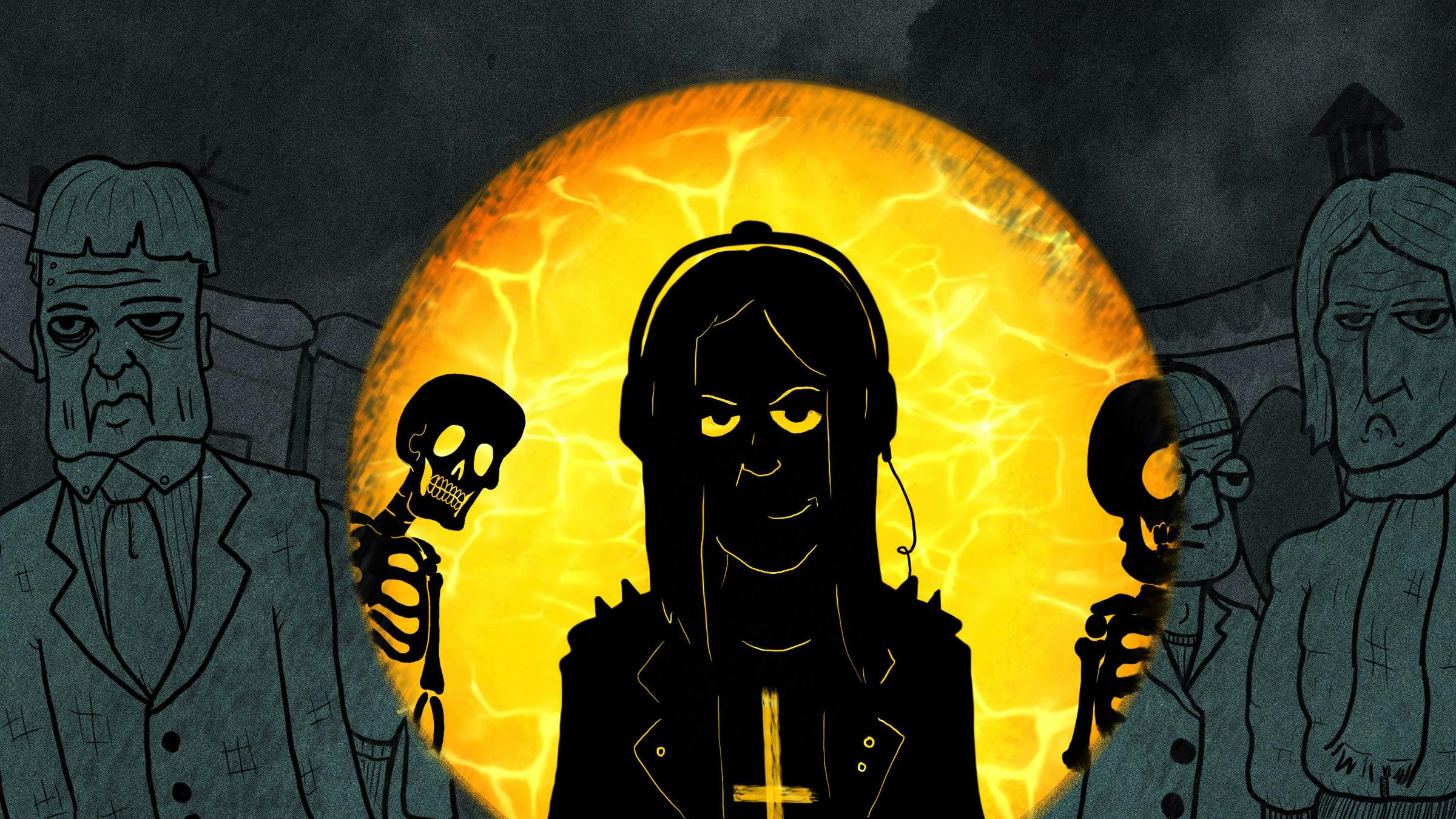But that sort of face-value approach to positive or negative reinforcement is what leads most people to tell depression sufferers to "cheer up". They don't realise that to some, a rainy day isn't just gross, it's crushing. Along those lines, people like me don't see obscene or violent art as ugly, we find it beautiful. In fact, it's the very darkness and hostility at the core of extreme metal that staves off the darkness and hostility of the world around me, and helps me find joy and peace.
First and foremost, metal is confrontational and hostile music, focused on standing against a world that doesn’t fully understand it. Part of the problem with Seasonal Affective Disorder is it makes you feel like gloom and sadness are the norm, but metal’s fury is a reminder that “the norm” can suck it from the back. Even if the metal song in question is especially bleak, it’s a reminder that life has always been bleak, so fuck it, be the force for change you want to see in the world.
That leads to another point: when you’re depressed, extreme metal makes you feel less alone. It’s a reminder that no matter how angry or sad you feel, there are other people who feel the same way, and have made awesome art to express it. This solidarity can shake you out of the feeling that it’s just your life and your life alone that’s miserable. That provides a jumping-off point from which you can find your own happiness, knowing that there's someone out there, even if they're all the way over in Scandinavia or Singapore, who has some idea of what you're going through.
Finally, there’s the simple grating, sweaty, forceful physicality of extreme metal. For many, depression is dense and suffocating, like ten damp blankets that you can’t get untangled from; after a while, it's just easier to let them weigh you down. But the growls, blastbeats, and shrieking guitars of extreme metal possess kinetic power and infernal heat. Extreme music grinds, charges, slams, explodes, and burns, all of which is like a form of spiritual cardio. When seasonal depression tries to overwhelm you with its overwhelming passivity, extreme metal’s reactionary nature provides a very active release, so heavy and powerful that it makes simple acts like getting up and going to work feel like charging into battle as part of a horde of Viking berserkers.
